A person with many interests
This is one of my interest
A polymath is a person who knows a lot about a lot of subjects, a person of wide knowledge or learning. A polymath is an individual whose knowledge spans a substantial number of subjects, known to draw on complex bodies of knowledge to solve specific problems.
People can compare polymath with a generalist but they are a lot different. In simple terms "specialization" is going in detail in one subject, "generalist" is one who learns about many subjects but just as much as a pinch of salt but "polymath" is one who takes many topics and goes deep in some specific topics of interest.
The starting of polymaths & works on it
In Western Europe, the first work to use the term polymathy in its title (De Polymathia tractatio: integri operis de studiis veterum) was published in 1603 by Johann von Wowern, a Hamburg philosopher. Von Wowern defined polymathy as "knowledge of various matters, drawn from all kinds of studies ... ranging freely through all the fields of the disciplines, as far as the human mind, with unwearied industry, is able to pursue them".
In the Italian Renaissance, the idea of the polymath was allegedly expressed by Leon Battista Alberti (1404–1472), a polymath himself, in the statement that "a man can do all things if he will".
In "Life Stages of Creativity", Robert and Michèle Root-Bernstein suggest six typologies of creative life stages. These typologies based on real creative production records first published by Root-Bernstein, Bernstein, and Garnier (1993).
Type 1 represents people who specialize in developing one major talent early in life (e.g., prodigies) and successfully exploit that talent exclusively for the rest of their lives.
Type 2 individuals explore a range of different creative activities (e.g., through worldplay or a variety of hobbies) and then settle on exploiting one of these for the rest of their lives.
Type 3 people are polymathic from the outset and manage to juggle multiple careers simultaneously so that their creativity pattern is constantly varied.
Type 4 creators are recognized early for one major talent (e.g., math or music) but go on to explore additional creative outlets, diversifying their productivity with age.
Type 5 creators devote themselves serially to one creative field after another.
Type 6 people develop diversified creative skills early and then, like Type 5 individuals, explore these serially, one at a time.
Finally, his studies suggest that understanding polymathy and learning from polymathic exemplars can help structure a new model of education that better promotes creativity and innovation:
we must focus education on principles, methods, and skills that will serve them [students] in learning and creating across many disciplines, multiple careers, and succeeding life stages.
Peter Burke, Professor Emeritus of Cultural History and Fellow of Emmanuel College at Cambridge, discussed the theme of polymathy in some of his works. He has presented a comprehensive historical overview of the ascension and decline of the polymath as, what he calls, an "intellectual species". Burke warns that in the age of specialization, polymathic people are more necessary than ever, both for synthesis—to paint the big picture—and for analysis. He says:
It takes a polymath to 'mind the gap' and draw attention to the knowledges that may otherwise disappear into the spaces between disciplines, as they are currently defined and organized
The most detailed work on the topic comes from THE POLYMATH by Waqas Ahmed. When examining the lives of historical polymaths, he only considered those who had made significant contributions to at least three fields. Ahmed points out that many children are fascinated by many different areas – but our schools, universities and then employment tend to push us towards ever greater specialization.
THE GREATEST POLYMATH OF ALL TIME
One of greatest and most famous person in history, Leonardo di ser Piero da Vinci (15 April 1452 – 2 May 1519) was an Italian polymath of the High Renaissance who was active as a painter, draughtsman, engineer, scientist, theorist, sculptor, and architect and more. While his fame initially rested on his achievements as a painter, he also became known for his notebooks, in which he made drawings and notes on a variety of subjects, including anatomy, astronomy, botany, cartography, painting, and paleontology. Leonardo is among the greatest painters in the history of art and is often credited as the founder of the High Renaissance. His magnum opus, the Mona Lisa, is his best known work and often regarded as the world's most famous painting. The Last Supper is the most reproduced religious painting of all time and his Vitruvian Man drawing is also regarded as a cultural icon. In 2017, Salvator Mundi, attributed in whole or part to Leonardo, was sold at auction for US$450.3 million, setting a new record for the most expensive painting ever sold at public auction.
The list of his skills go long, some of which are famed as a painter and a sculptor, his expertise extended to architecture, science, music and mathematics, and to anatomy, geology and botany, as well as to engineering, astronomy, palaeontology and history. He was also an inventor, and drew plans and detailed drawings of an ornithopter and a proto-helicopter.
Some other polymaths
some other polymaths throughout history
Aristotle, he is also one of the few to have approached almost all the fields of knowledge of his time: biology, physics, metaphysics, logic, poetics, politics, rhetoric and occasionally economics.
Benjamin Franklin was an American polymath who was active as a writer, scientist, inventor, statesman, diplomat, printer, publisher, and political philosopher and one of the founding father of United States.
Rabindranath Tagore was a Bengali polymath who worked as a poet, writer, playwright, composer, philosopher, social reformer and painter.
Becoming a polymath
Becoming a polymath is easier than ever as in the past people didn't had access to this much information as us. Now to learn a new skill all you need is will to learn and google. One can learn anything about something searching on google or through a youtube video.
To become a polymath, one needs to:
Cultivate diverse passions and interests
One needs to choose his interests, find his passions and try to go into detail with them.
Lay out your goals
We need to lay out our goals of what we need to do in this subject and our plans.
Practice — without worrying about perfection
To become a better polymath we need to practice our interests without worrying about perfection, so we can know about it better and more.
Find mentors
We need to find good mentors in the field and our interests so that we can learn more.
Get feedback from yourself
We need to create a feedback loop, when we complete a task we should ask ourselves if we did good or what are our weaknesses.
Is it any good?
Becoming a polymath can be extremely beneficial. "Polymath" and "Generalist" are terms that are often used interchangeably, both meaning a broad skill set but the beauty of polymath is that you can still take the advantage of specialization and go deep in new interests rather than just scratching the surface of something like a generalist.
One can become more innovative by combining things from other field in another to create something new. It will improve your creativity and critical thinking. Polymaths have a higher capacity to adapt to change. Change is what we need in the world, we need to shift from hyper-specialization to polymathy which can help us to innovate and get greater results.
I am an aspiring polymath and I write about all the findings of my curiosity in this blog/newsletter. Maybe with this I can inspire someone to become a polymath and get interested in things instead of a thing.
Stay amazing.


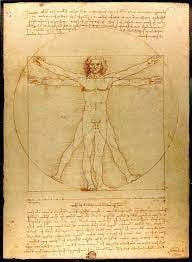
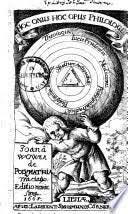
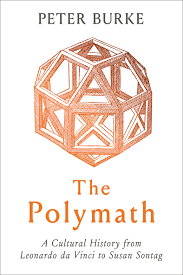
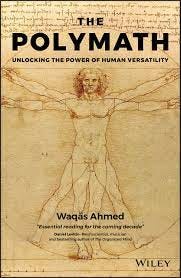
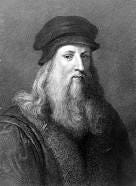
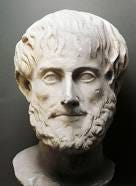

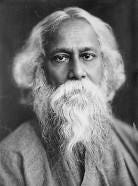
Vhh yrr 😏